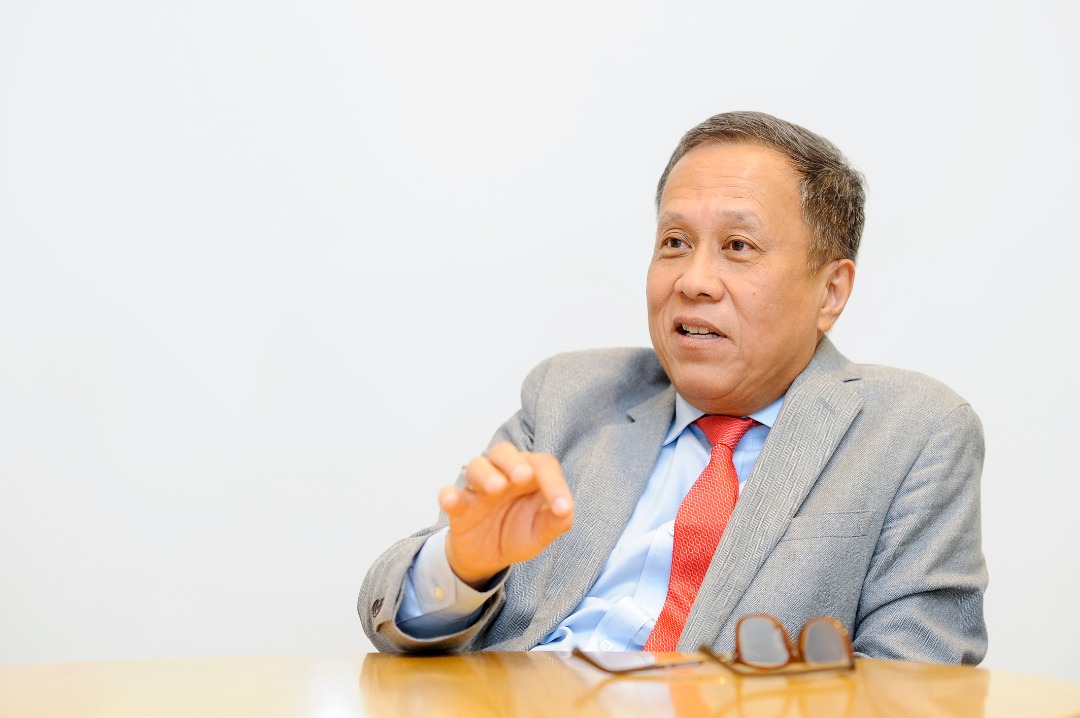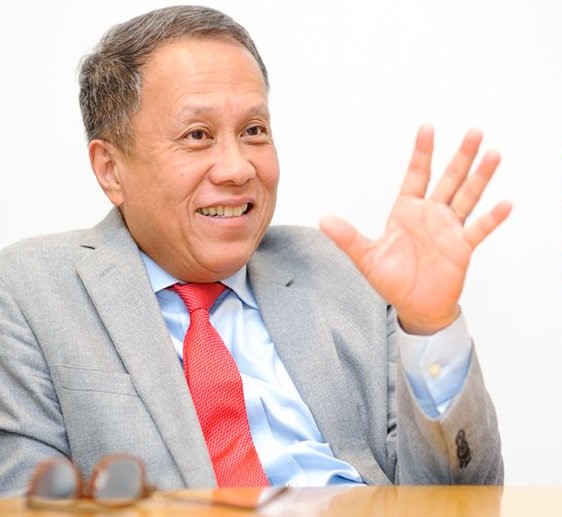The Essence of Mentorship
What Makes A Great Mentor, And The Importance of Having One
 Professor Ir. Dr. Mohd. Shahir Liew’s name surely rings a bell as his presence exudes definitiveness and certainty. Currently serving as the Deputy Vice Chancellor, Research and Innovation, at Universiti Teknologi PETRONAS, Prof. Shahir is also no stranger to the industry. Crafting his name both locally in Malaysia and garnering new heights overseas – his moniker now carries great weightage.
Professor Ir. Dr. Mohd. Shahir Liew’s name surely rings a bell as his presence exudes definitiveness and certainty. Currently serving as the Deputy Vice Chancellor, Research and Innovation, at Universiti Teknologi PETRONAS, Prof. Shahir is also no stranger to the industry. Crafting his name both locally in Malaysia and garnering new heights overseas – his moniker now carries great weightage.
A lot of the times, school leavers either have a definitive idea of what they wish to study, or they take risks in exploring the unknown. When asked if there was a specific basis as to why Prof. Shahir chose to embrace the world of Civil Engineering, he says,
“There’s no particular reason as to why I got involved in this field of major, however, one thing does come to mind. It deals with humanity, making both the mankind and life easier. It also provides the infrastructure for mankind and it is able to develop the world”.
Prof. Shahir talks about the correlation between his background of study with how it has substantially affected his own self. The main theme for this being the area of development. He proceeds to comment by saying,
“The choice I made has certainly impacted me as I also choose to constantly develop myself in progressing further. It also reflects on how I actualize things and of course, to improvise on that from time to time”.
Having passions and being passionate about something gives you the drive and motivation to further pursue things at great height. During the interview, it was apparent how apart from the area of study and work that he has adopted, he also is quintessentially passionate about one other thing: mentoring. He elaborates, “I am all about developing people and their career. I like to develop young people and mentor them to ensure that they have a sense of purpose to their lives. This is to inculcate the value of leadership qualities amongst them and create a chain of continuity which they can then pass on to others as well”.
 He then explains how there are two types of mentoring that one can do. The first being developmental, whilst the other is sponsoring. In this case, Prof. Shahir does both. Sponsor in this context means, as he is quite the senior within the industry, he has the capability to place these individuals in areas where it is deemed to be most suitable for them.
He then explains how there are two types of mentoring that one can do. The first being developmental, whilst the other is sponsoring. In this case, Prof. Shahir does both. Sponsor in this context means, as he is quite the senior within the industry, he has the capability to place these individuals in areas where it is deemed to be most suitable for them.
“As for the developmental aspect, it is more to guide them throughout their career path to where they’re heading, and along the way show them their blind spots that they may have missed along the way.”
He then adds, “In essence, they need to guide their own way forward in knowing what their action plans are for them to eventually achieve their goals. It will be a few years of a game plan, where after a while, we will revisit this and see if targets have been achieved, and if not, why that is the case”.
He continues: “Along the way, I have exposed my mentees to areas of research, soft skill, writing, organizational skills, leadership, and consultancy. I believe all those who I have mentored here at UTP have all been truly successful in what they do”.
Despite this being a clear passion of his, there are implications to molding someone for the better. Prof. Shahir mentions how one of the challenges in doing this is changing people’s mindset, and to allow them the ability to understand what it is they should be looking at.
He adds: “The world is vast and wide; there’s just so much to do and achieve. There are certain things that you do that ultimately will fulfill your goals and ambitions. Are you enjoying your work, or do you feel forced in doing so? These are the things to remember. If there’s one thing that I’ve learnt through doing this is that a good leader is not afraid to bring out more leaders”.
Prof. Shahir then talks about the kind of obstacles present through his time conducting research. For him personally, research relates to the infrastructure revolving around one’s work, be it the hardware or software. He also states how the other thing is finding the right group of people with the right mindset to collaborate on the research.
He states: “I believe that research is being a team and putting our heads together. I think the biggest obstacle is to have everyone understand the significance of the research and how we could contribute to the areas in need”.
As highlighted in the beginning, Prof. Shahir has had the liberty of gaining experiences overseas. During the interview, he was asked about the experiences labored whilst in the States and how this had developed his career and self.
He explains, “I think that if I were to have stayed in Malaysia, my mind set would not have been as vast – thinking that the world was only here. My time spent overseas has taught me a lot of good soft skills, being able to express myself openly, and to share without fear or malice. Also, the capability to engage with people and indulge in a conversation. These are some of the things that I’ve managed to gather especially in America”.
Additionally, Prof. Shahir also shared the principles that he upholds and goes by in life. “My life motto is to always bring in other leaders. I always tell my students that you always want to do things in your life that people would then associate you with. These qualities are what will make you be remembered by others. For myself, I stand by three things: professionalism, integrity, and reliability”.
We as human beings have our own battles and qualms with the inner thought of ‘what if’, or how things could’ve been differently. Prof. Shahir does not shy away from sharing his own thoughts that reflect this by stating, “I wish someone would have mentored me a lot earlier in my life. I was only exposed to this in my late thirties. I wish that I would have had the same opportunity as those that I’m mentoring now, from a younger age. The moment someone walked in and mentored me, was the moment that I decided this was something that I wanted to do for other people as well”.
In concluding the interview, Prof. Shahir was asked the simple yet profound question on ‘what makes Prof. Shahir, Prof. Shahir?’ He responds by mentioning, “That’s a good question. I think I have a passion for life. Secondly, I always believe in the importance of planning, because without proper planning, you wouldn’t know which direction to go. What makes me, me is that I no longer look at money as the sole focus. I find the joy in bringing value towards other people. The people I work with or mentor have now become my assets”.
“If you want to go fast, then you’ll have to go alone. But if you want to go far, then you’ll need a team. Teamwork is essential: I often say that the strength of the team is as weak as the weakest link”.
In the words of Phil Collins; In learning you will teach, in teaching you will learn.
Published on 25 February 2020

